TRAUMATIC INJURIES
Traumatic dental injuries often occur as a result of an accident or sports injury. The majority of these injuries are minor (chipped teeth). Dislodged or avulsed teeth are less common but more severe traumatic injuries. Treatment depends on the type, location and severity of each injury. Regardless of the extent of the injury, the injured tooth requires immediate examination by a dentist or an endodontist. As a practice limited to endodontics, we specialize in treating traumatic dental injuries. With our advanced skills, techniques and technologies, these traumatically injured teeth can often be saved. If you have a cracked or injured tooth, please call our office as soon as possible.
How will my traumatic injury be treated?
CHIPPED OR FRACTURED TEETH
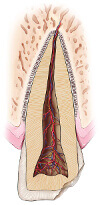 If you've chipped or fractured your tooth's crown, it's likely it can be repaired either by reattaching the broken piece or by putting a tooth-colored filling in place. If a significant part of your tooth crown is broken off, an artificial crown or "cap" may be needed to restore it. When the pulp is exposed or damaged after a crown fracture, root canal treatment may be needed. These injuries require special attention.
If you've chipped or fractured your tooth's crown, it's likely it can be repaired either by reattaching the broken piece or by putting a tooth-colored filling in place. If a significant part of your tooth crown is broken off, an artificial crown or "cap" may be needed to restore it. When the pulp is exposed or damaged after a crown fracture, root canal treatment may be needed. These injuries require special attention.
DISLODGED (LUXATED) TEETH

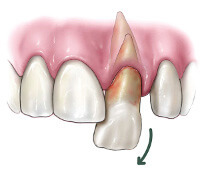 During an injury, a tooth may be pushed sideways, out of, or into its socket. The tooth will be re-positioned and stabilized. Root canal treatment is usually necessary for permanent teeth that have been dislodged and should be initiated several days following the injury. Medication may be placed inside the tooth as part of the root canal treatment. Once treatment is completed, permanent restoration of the tooth as soon as possible is recommended.
During an injury, a tooth may be pushed sideways, out of, or into its socket. The tooth will be re-positioned and stabilized. Root canal treatment is usually necessary for permanent teeth that have been dislodged and should be initiated several days following the injury. Medication may be placed inside the tooth as part of the root canal treatment. Once treatment is completed, permanent restoration of the tooth as soon as possible is recommended.
KNOCKED OUT (AVULSED) TEETH
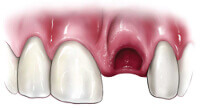
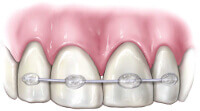 If one of your teeth is completely knocked out of your mouth, call our office immediately. The sooner treatment is performed, the greater the chances of saving the tooth.
If one of your teeth is completely knocked out of your mouth, call our office immediately. The sooner treatment is performed, the greater the chances of saving the tooth.
An avulsed tooth should be handled very carefully and contact with the root surface should be avoided. The avulsed tooth will be evaluated, placed back in its socket, and splinted in our office. Depending on the stage of root development, root canal treatment may be initiated a week or two later. Prognosis of treatment may be affected by the length of time the tooth was out of the mouth and how it was stored before treatment. In such a case, it may be necessary to discuss other treatment options.
ROOT FRACTURES
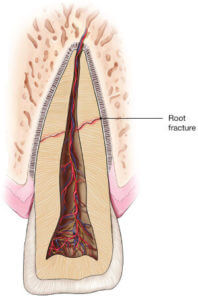 A traumatic injury to the tooth may result in a horizontal root fracture. The location of the fracture determines the long-term health of the tooth. The closer a fracture is to the root tip, the better the chances of success and long-term healing. Fractures closer to the gum line have a worse prognosis. Sometimes, stabilization of the tooth with a splint is required while the tooth heals.
A traumatic injury to the tooth may result in a horizontal root fracture. The location of the fracture determines the long-term health of the tooth. The closer a fracture is to the root tip, the better the chances of success and long-term healing. Fractures closer to the gum line have a worse prognosis. Sometimes, stabilization of the tooth with a splint is required while the tooth heals.
Questions or Appointments?
Here at Elite Root Canal Specialties, our mission is to provide you with quality endodontic treatment in a gentle, warm, painless and comforting environment. Do you have questions about our procedures or need to schedule an appointment? Please contact our office.
